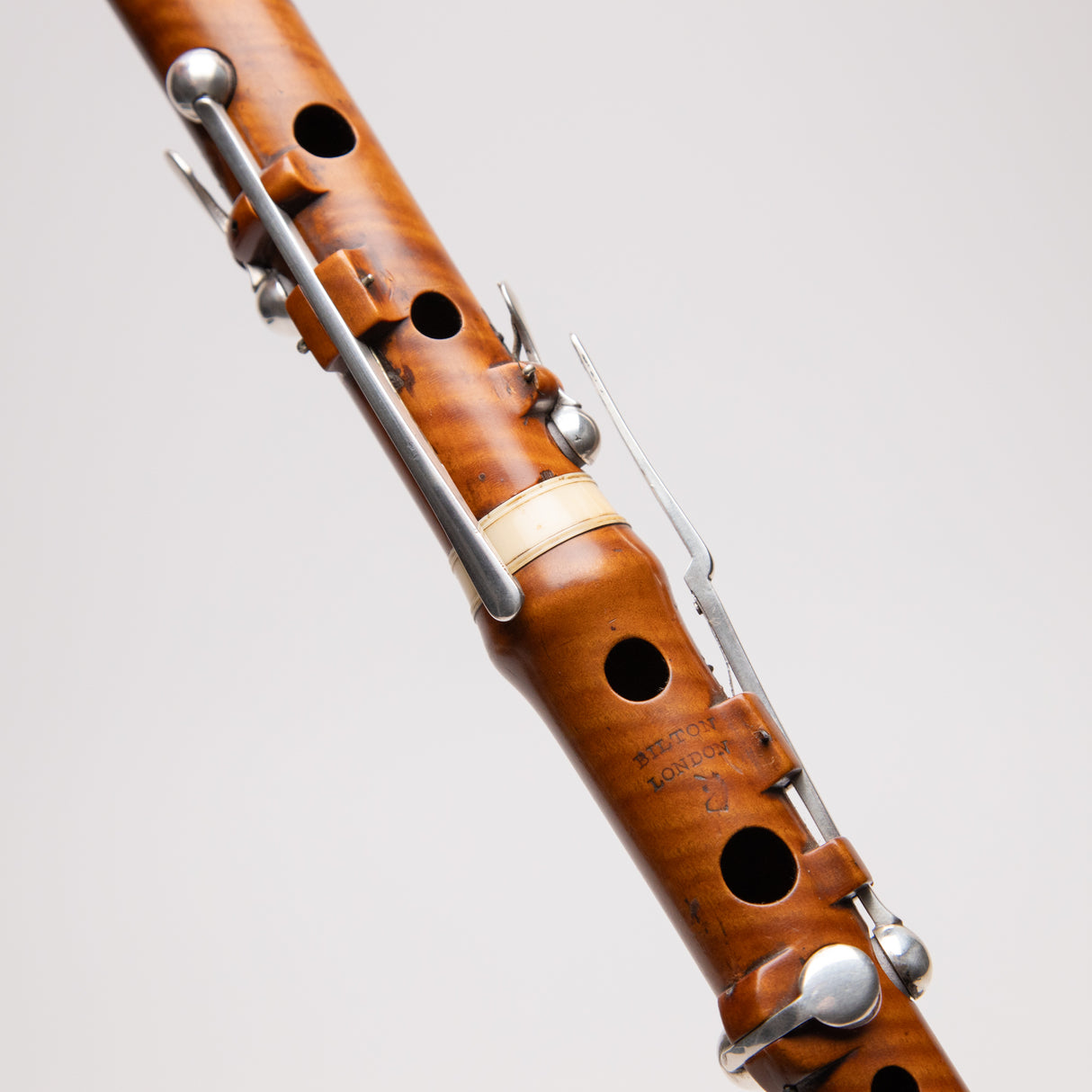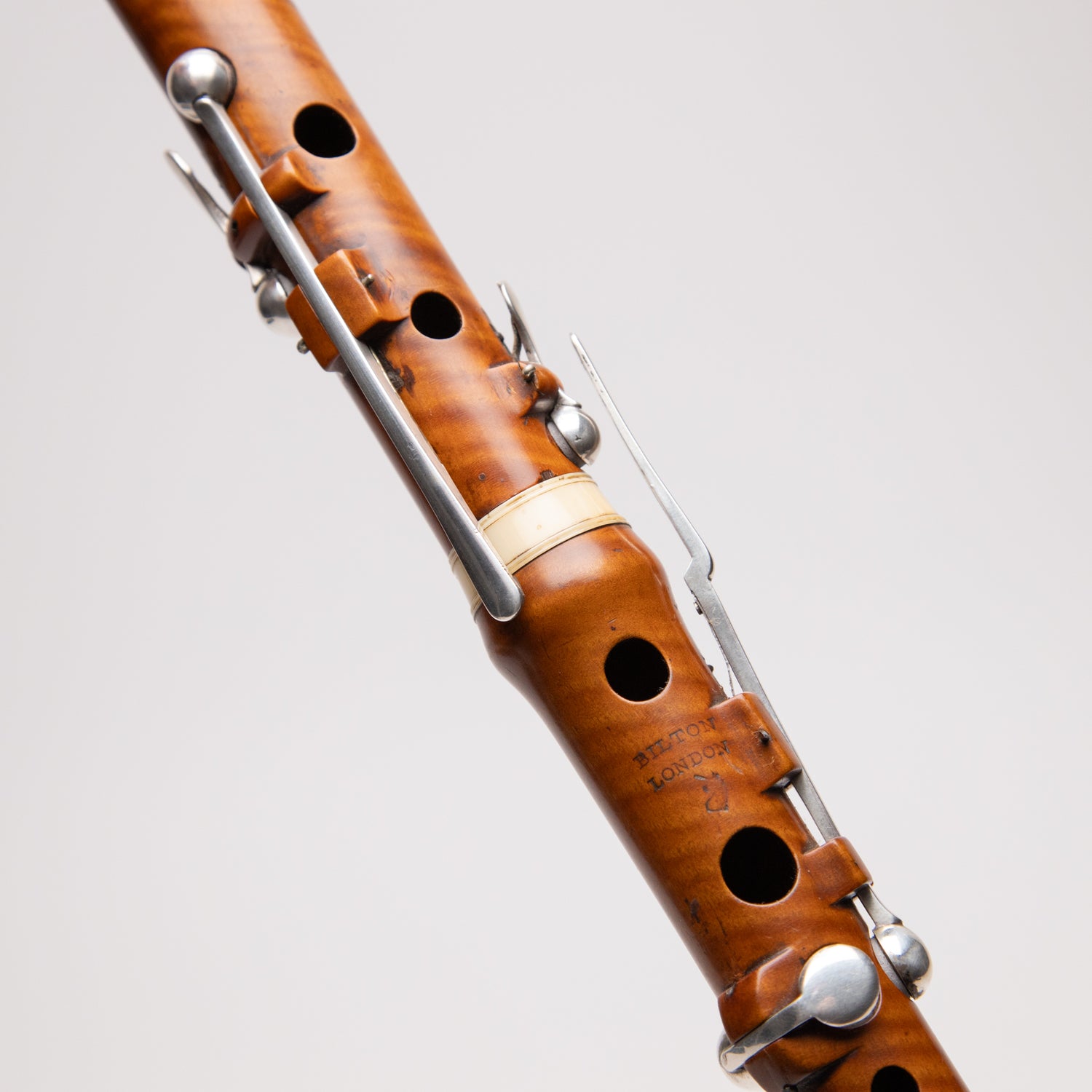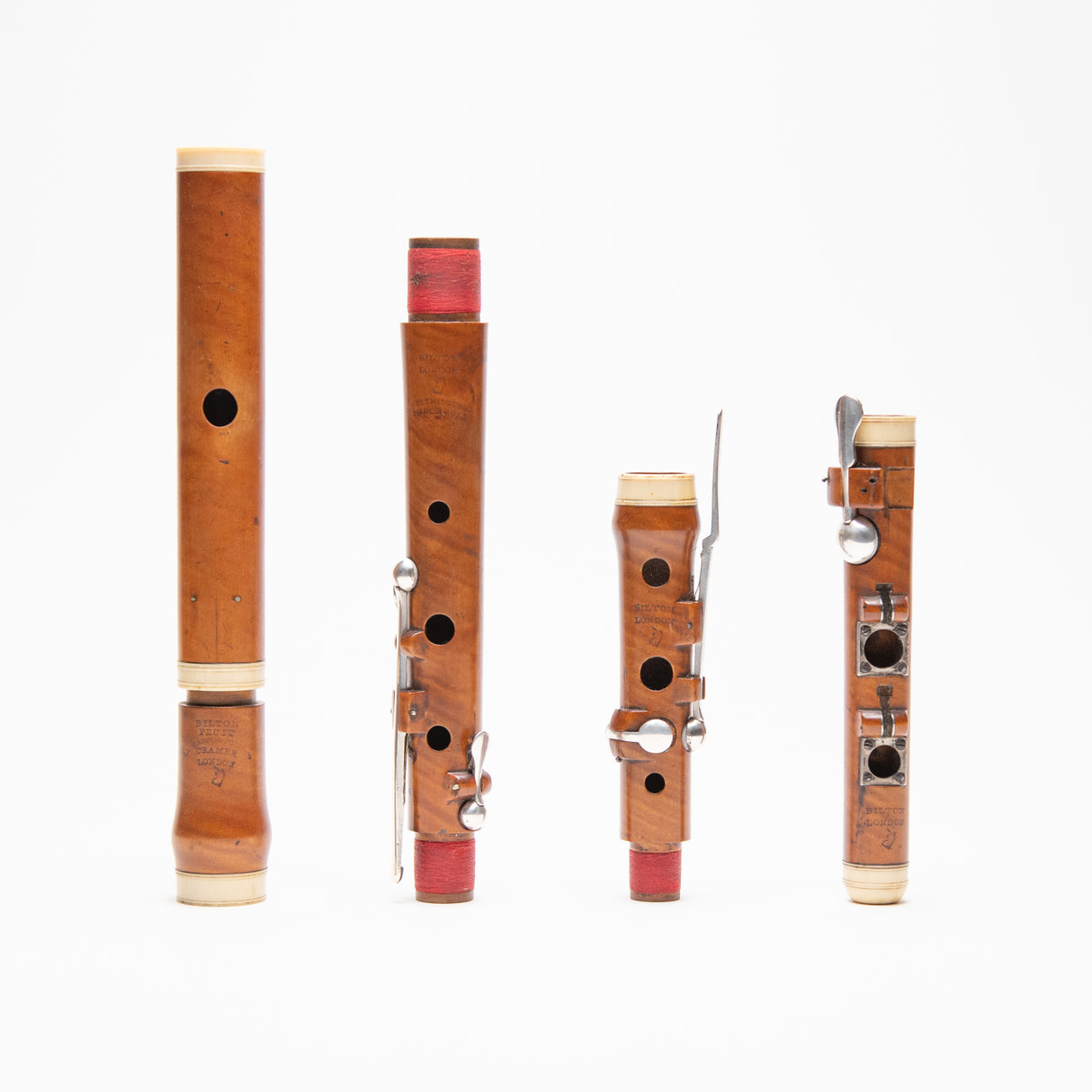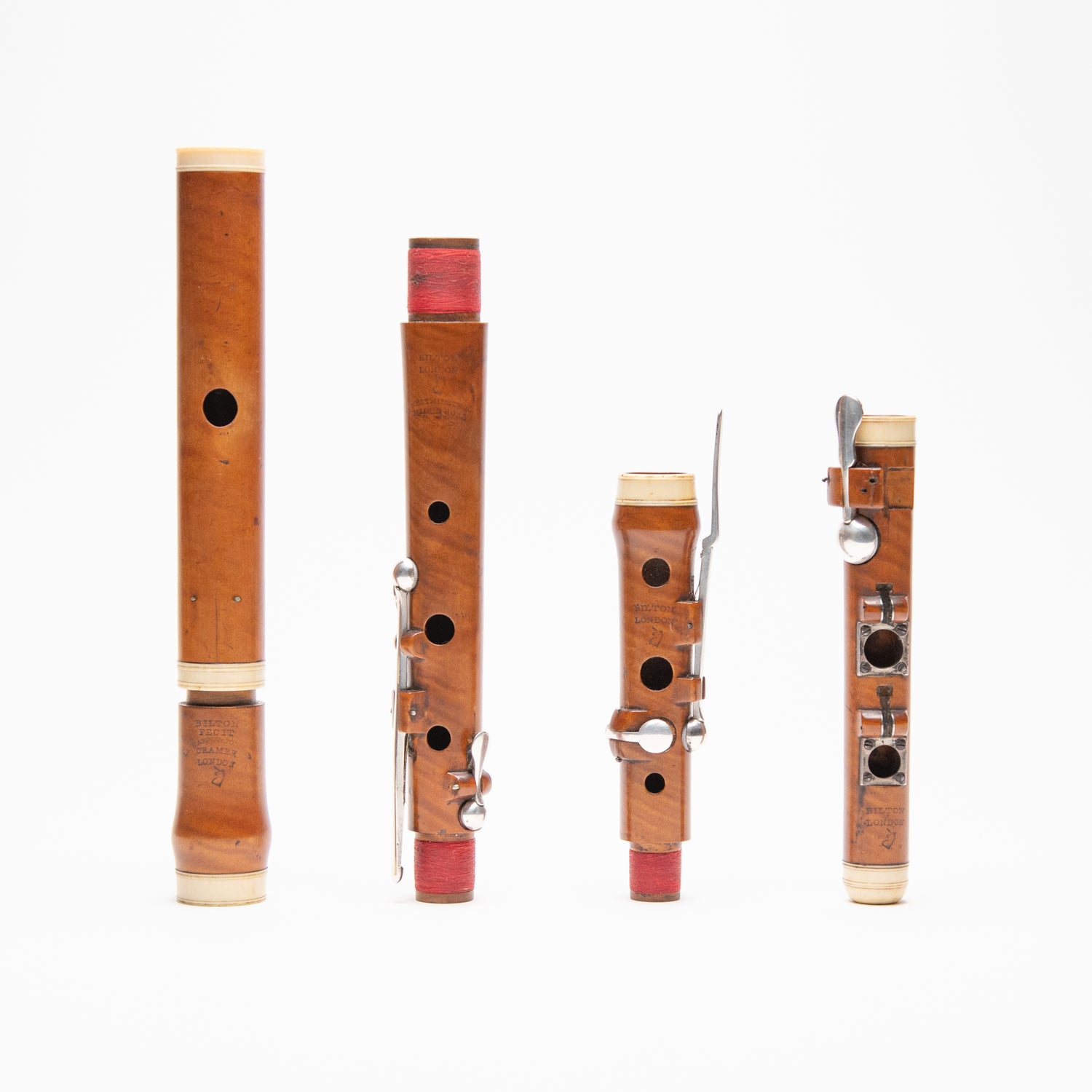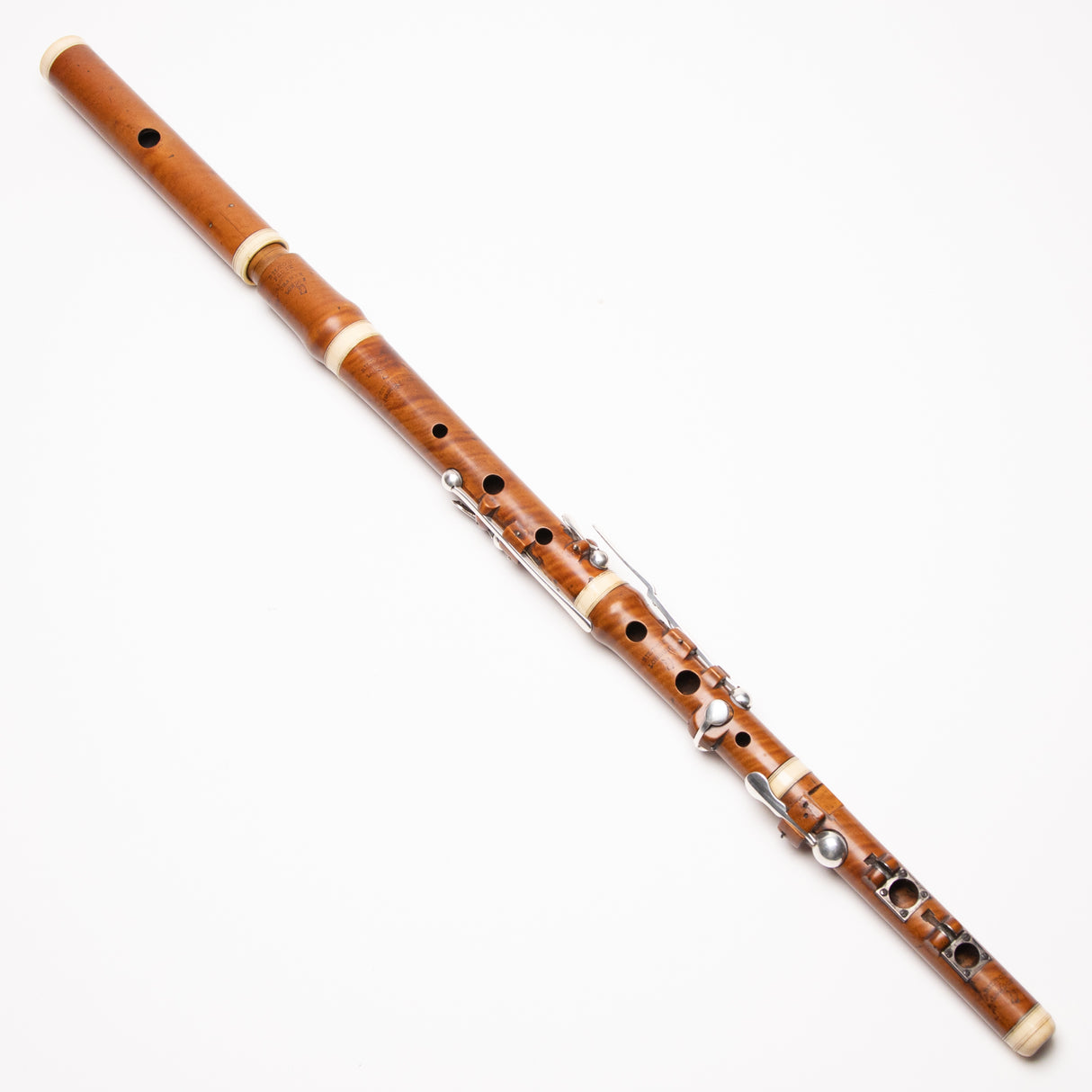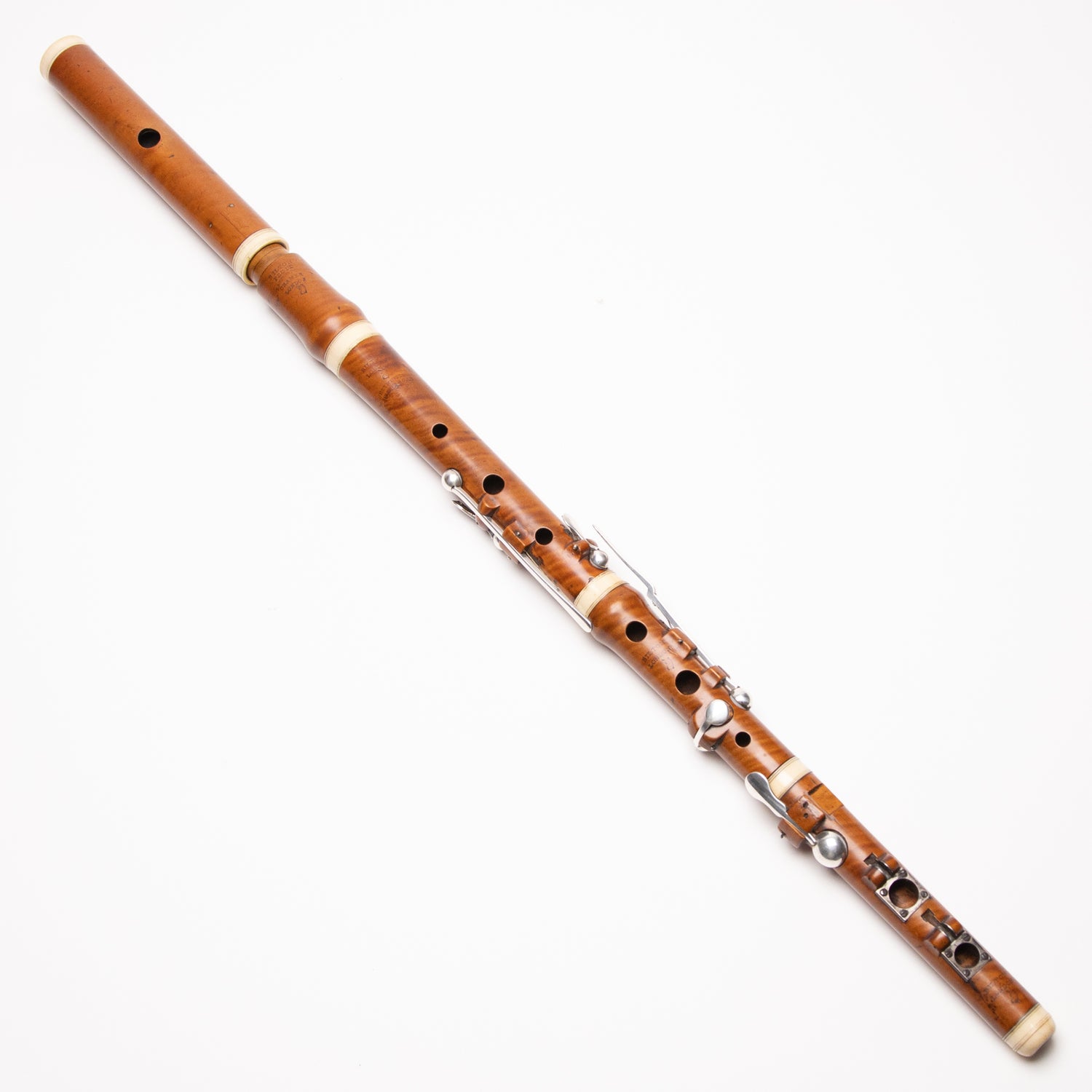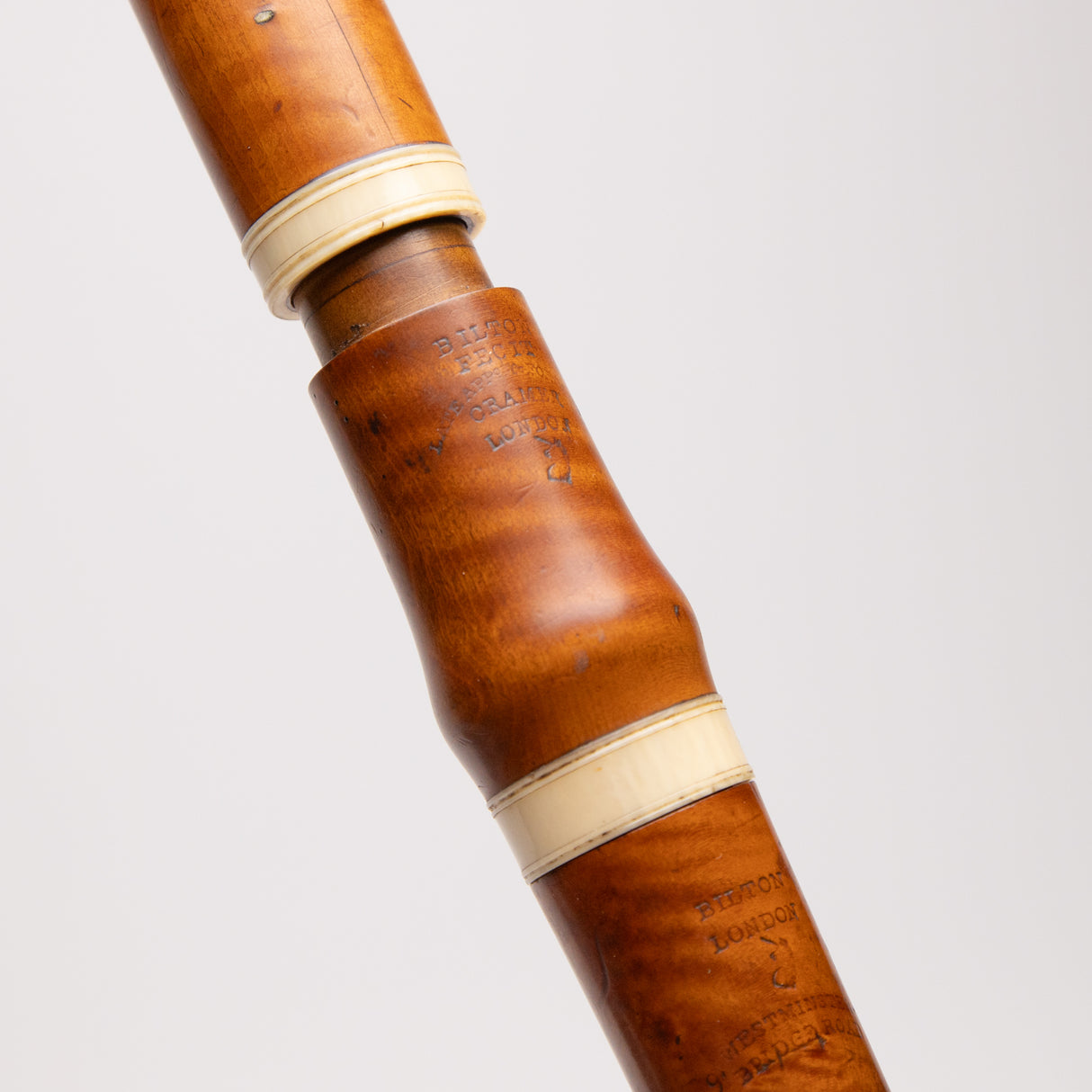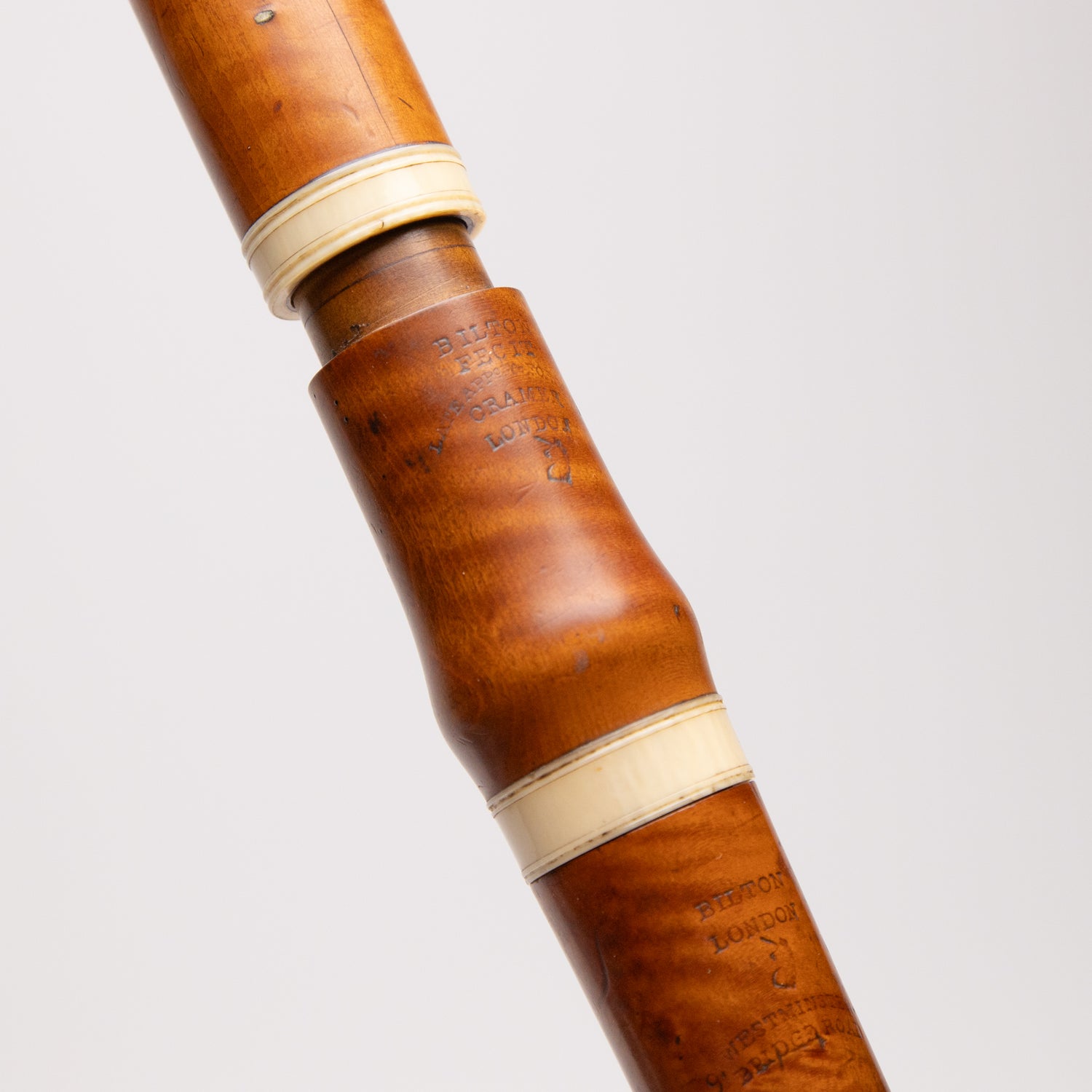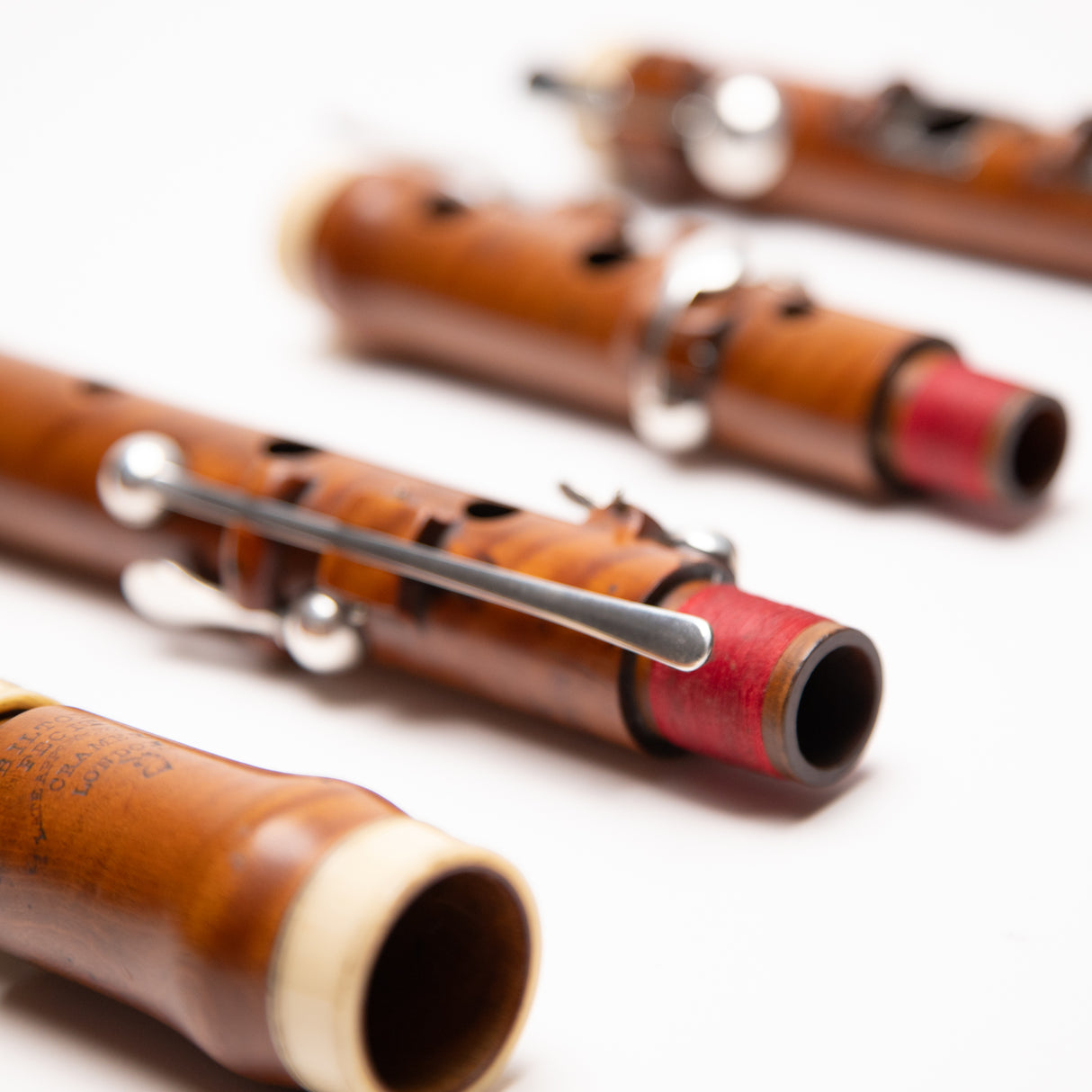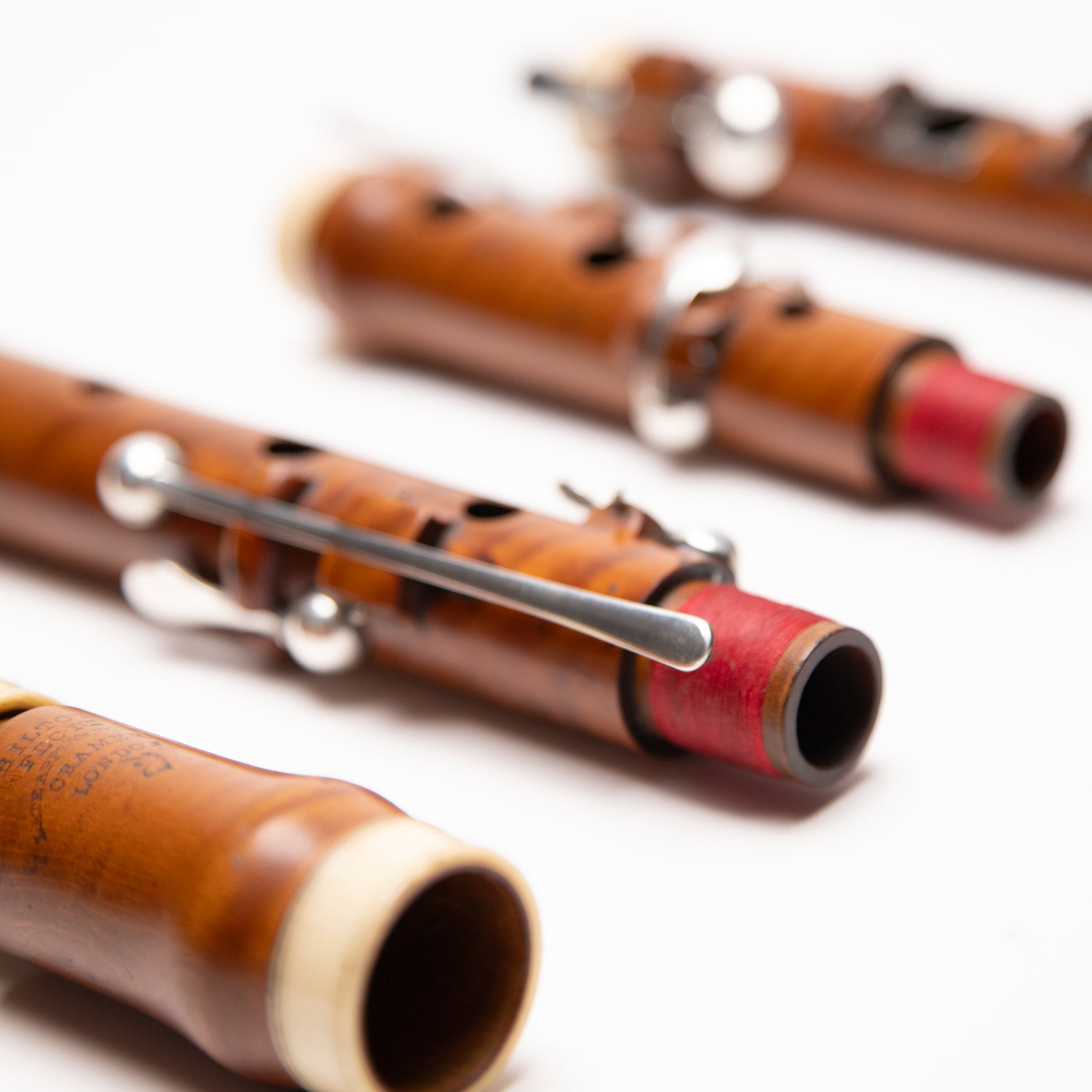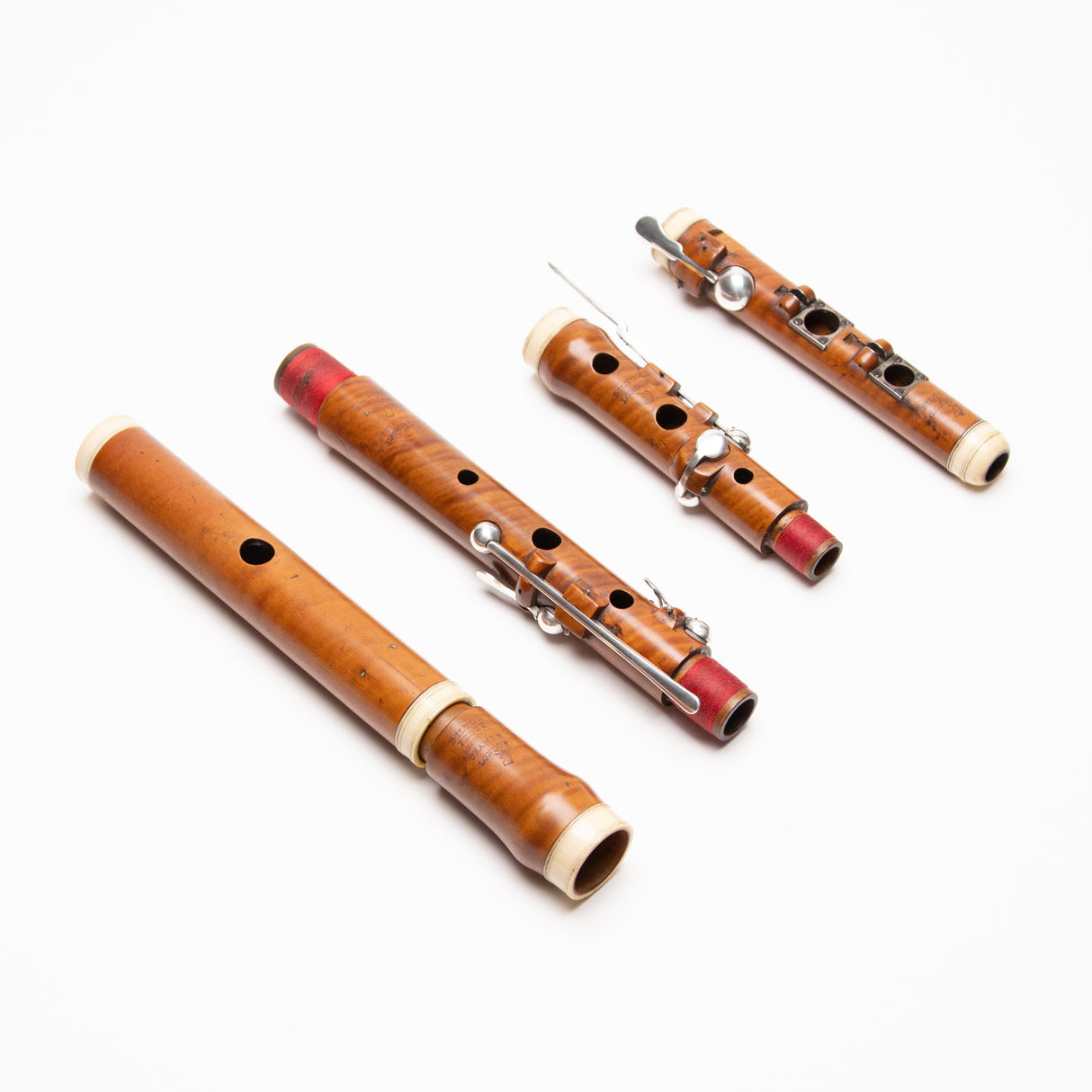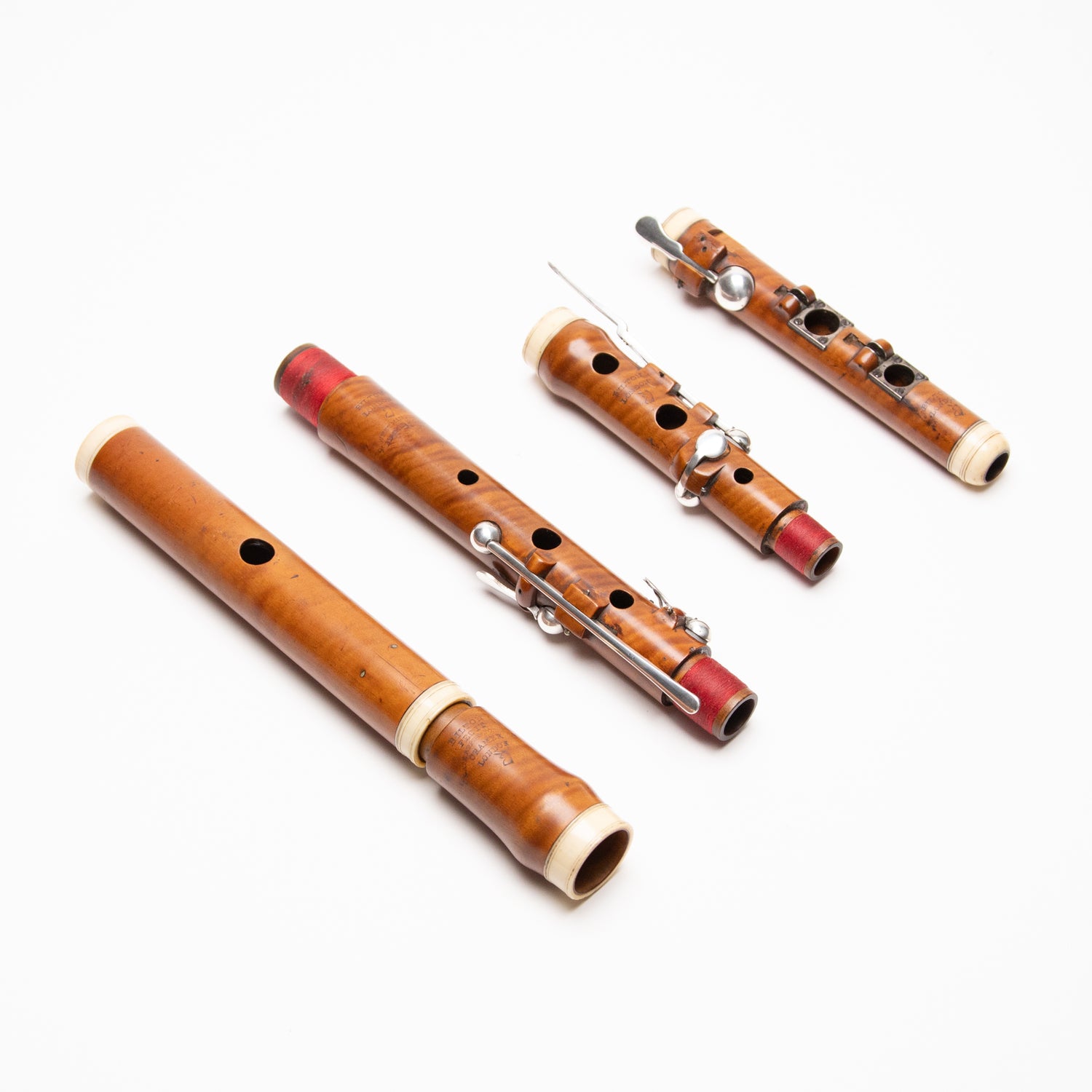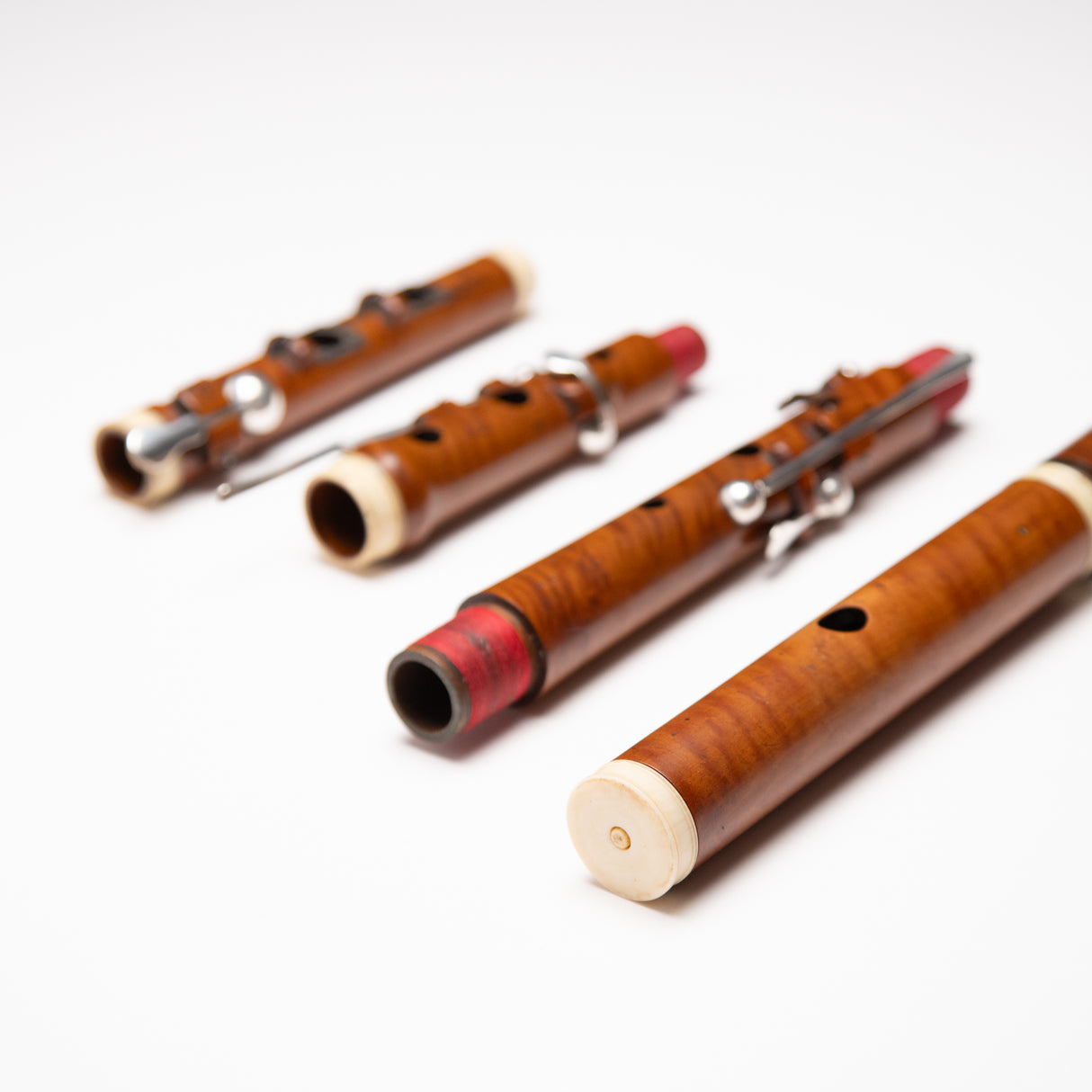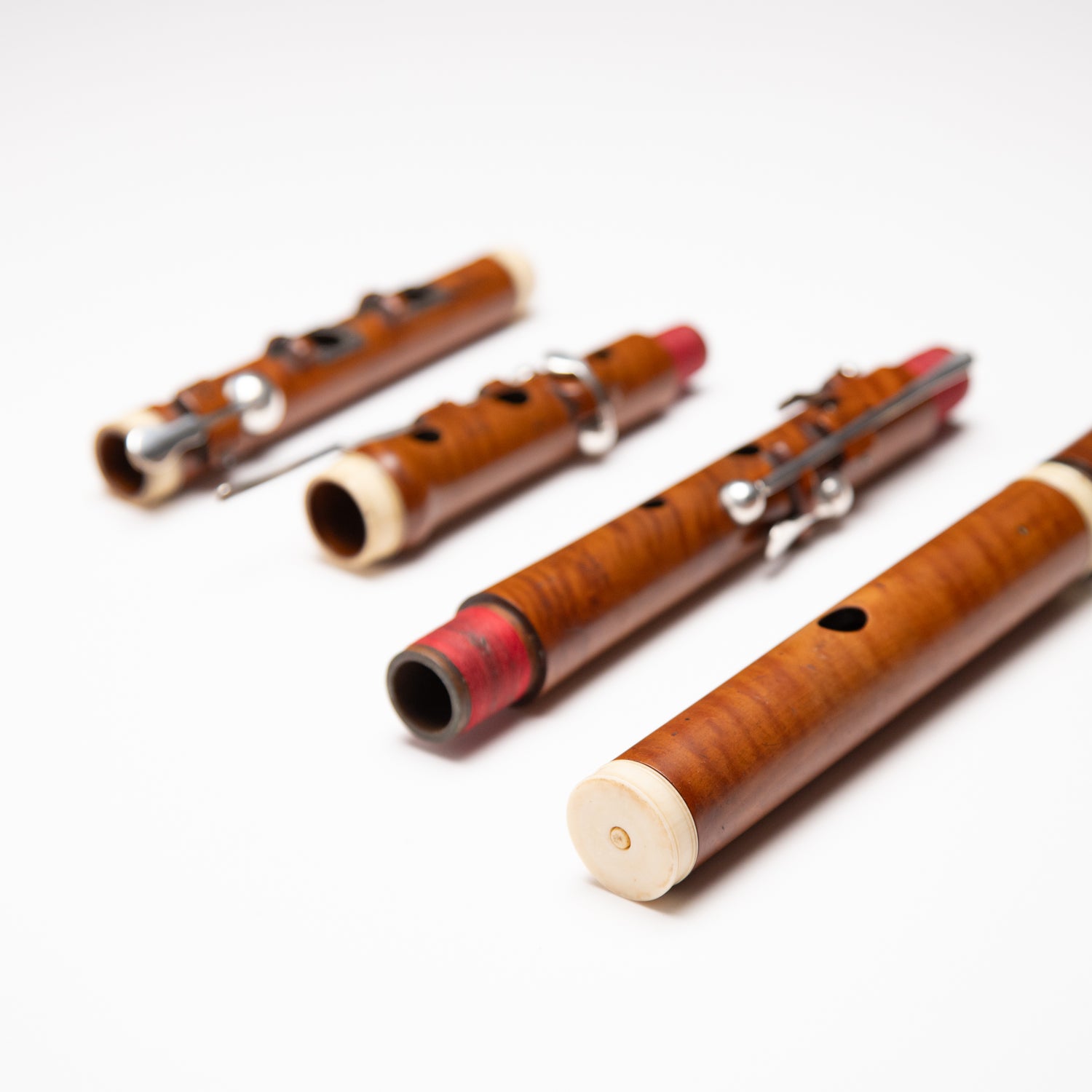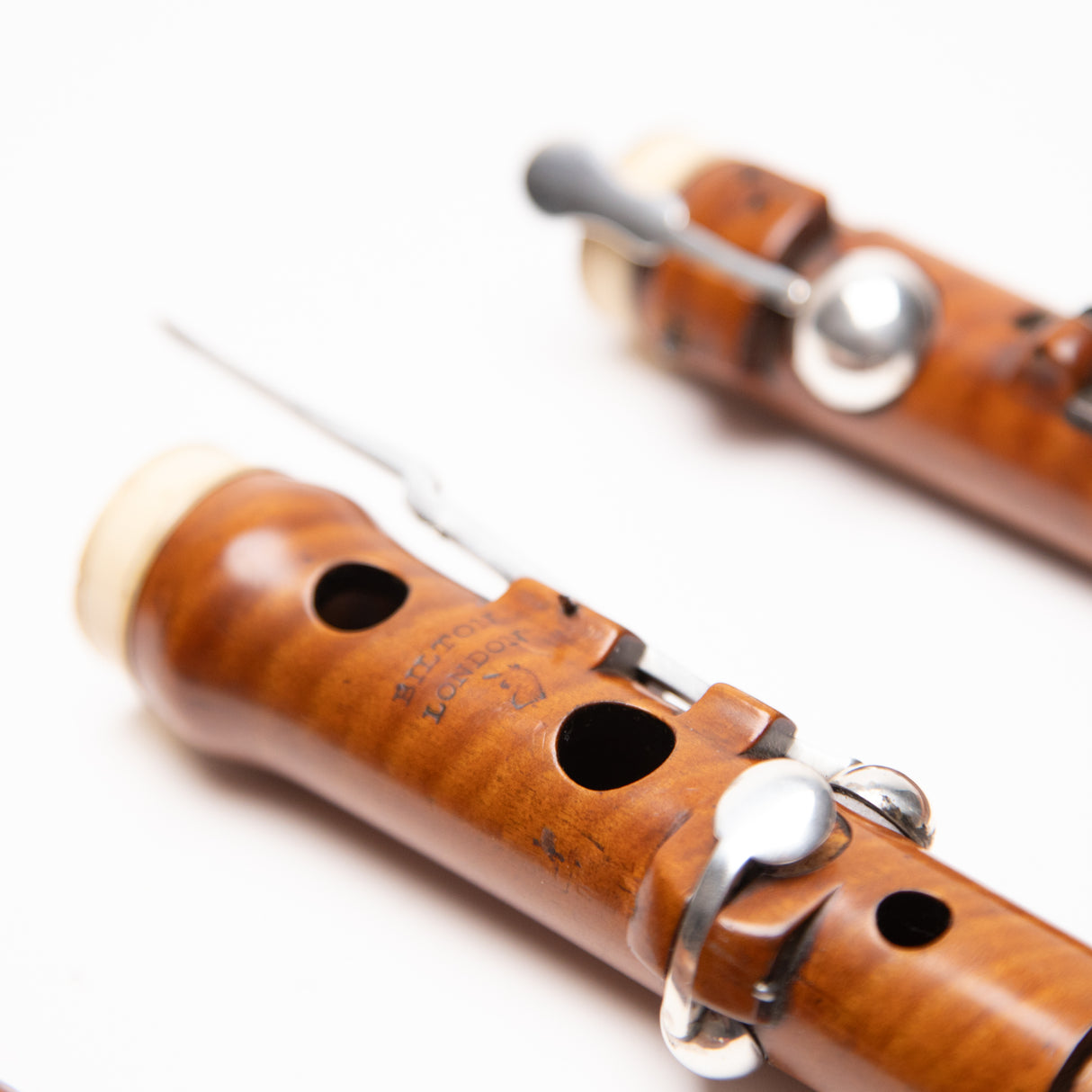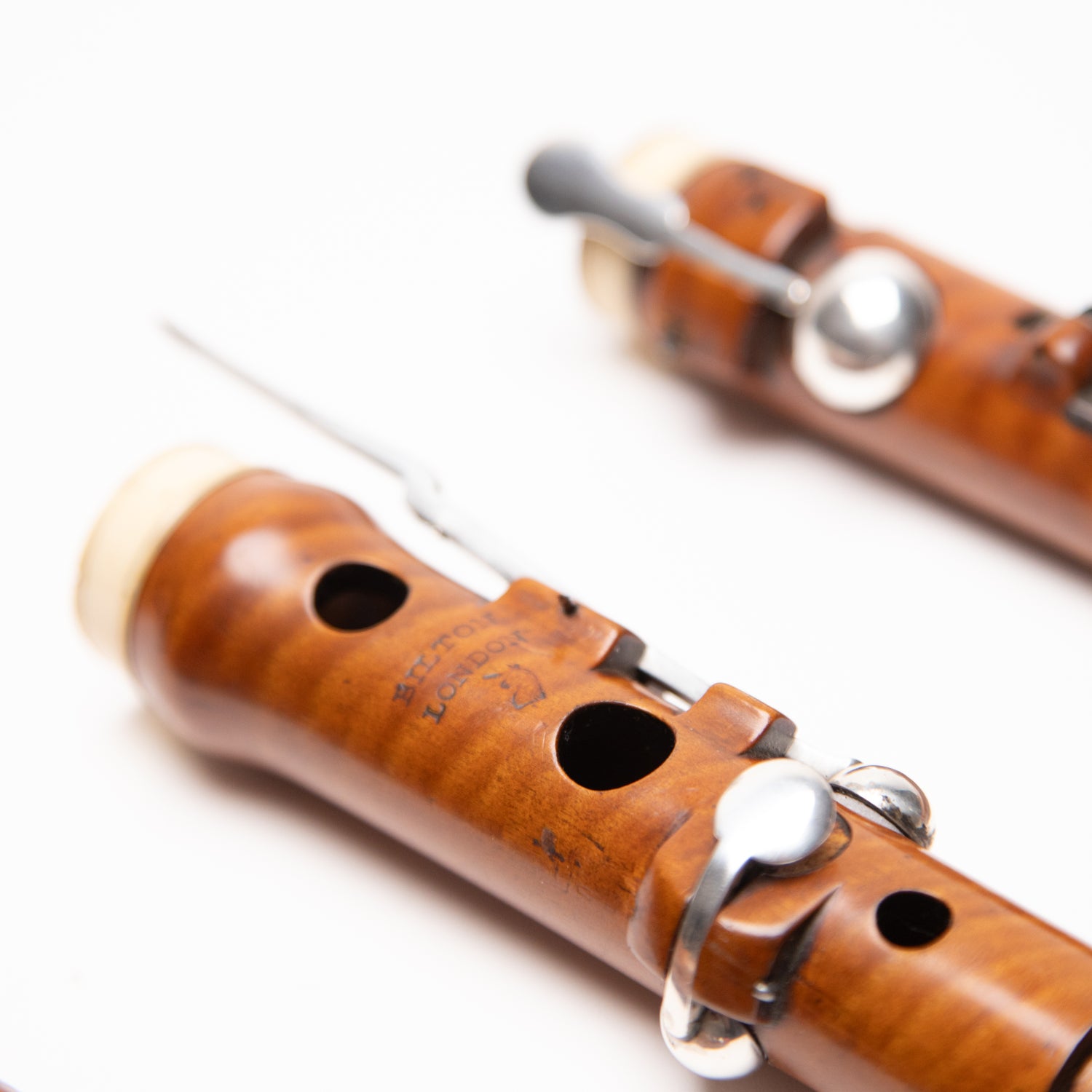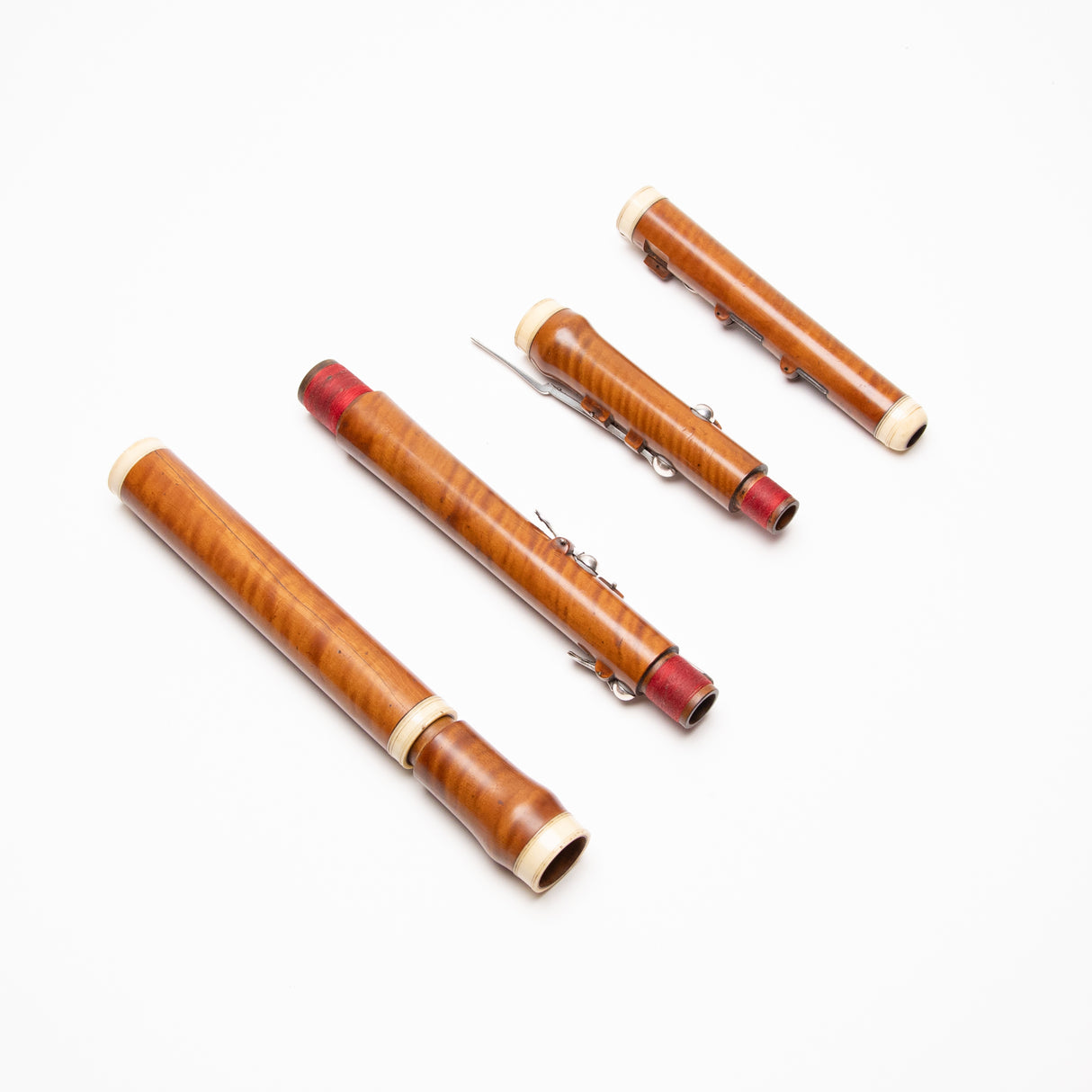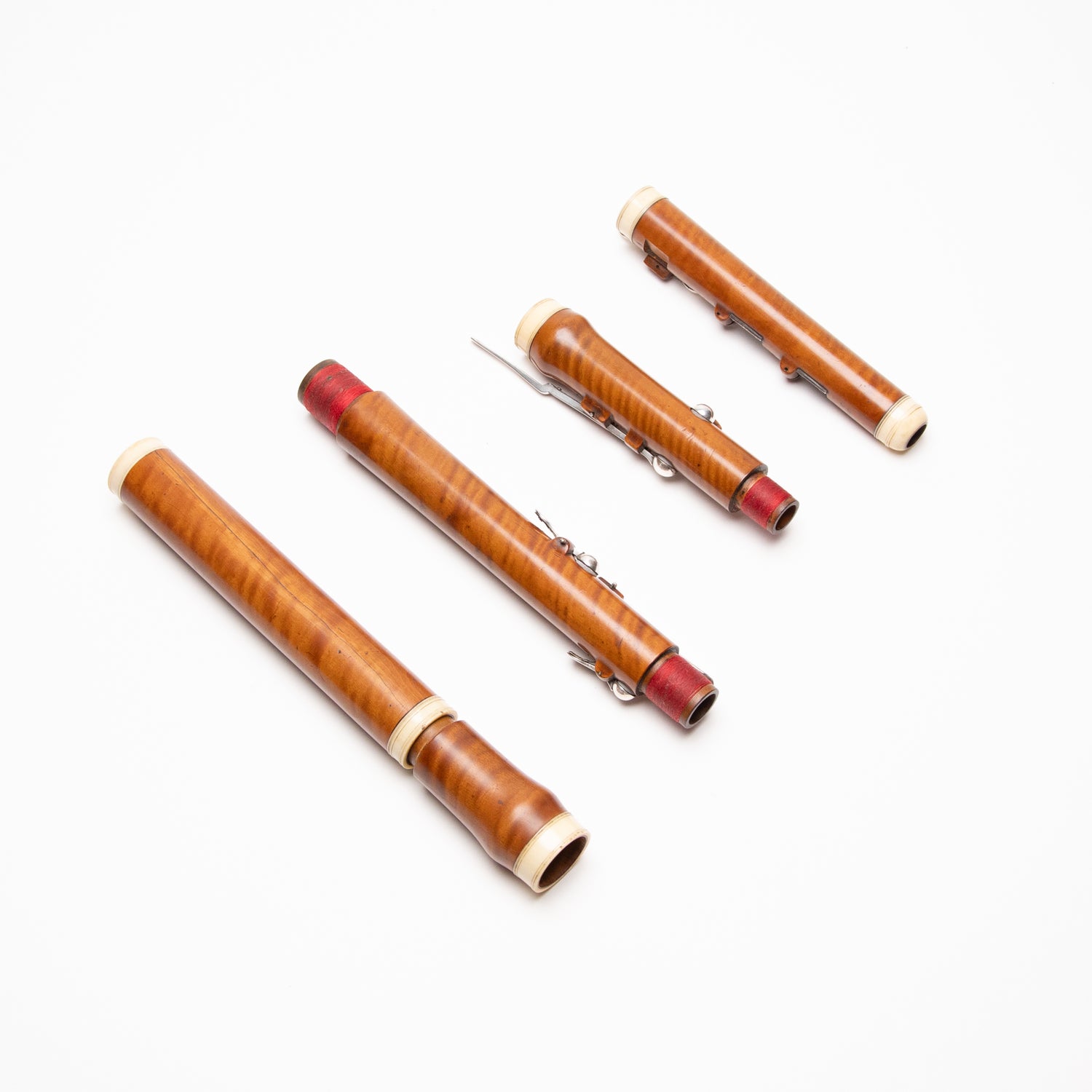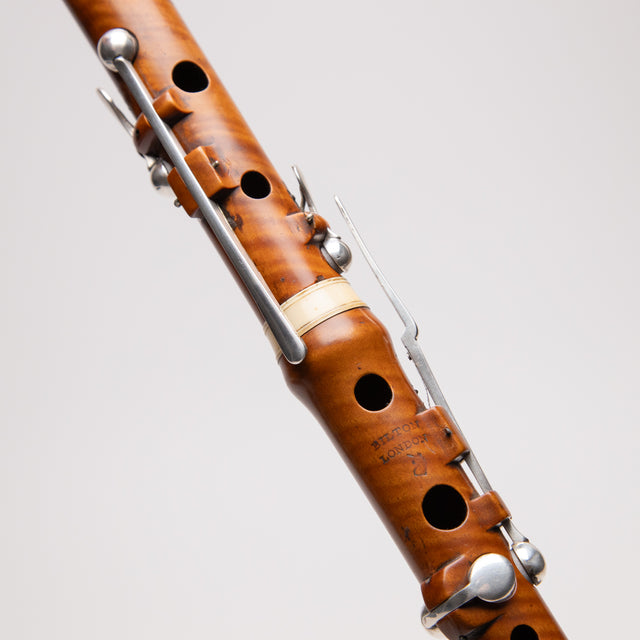This beautifully crafted flamed boxwood, ivory, and silver flute by Richard Bilton, dating from around 1826-1856, is a fine example of 19th-century craftsmanship. Despite missing its low C/C# keys and showing signs of age with repaired cracks and nicks, the flute remains in excellent playing condition due to recent restoration, including sealing the original headjoint. The instrument plays well at A440 with the tuning slide extended about 1/2", producing a strong, resonant sound.
The flute is light and responsive, thanks to its boxwood and ivory construction, with larger tone holes that contribute to its robust voice. In terms of intonation, it plays well in tune, though the A and B notes require some lipping down, and the bottom D benefits from a more assertive approach to bring it to pitch, which it responds well to. Adding a touch of shellac or wax to the A/B tone holes could bring the pitch down slightly without significantly affecting the tone, though this is a matter of personal preference.
Richard Bilton, a 19th-century English flute maker based in London, was known for his fine craftsmanship during a period of significant development in woodwind design. His flutes, stamped "Westminster Road," reflect the high standards of the time and are now rare and valued by collectors and historical musicians alike. Bilton's legacy lives on through the surviving examples of his work, offering a glimpse into the rich history of Victorian-era woodwind instruments.
Condition: Used - Good
Condition: Details:

